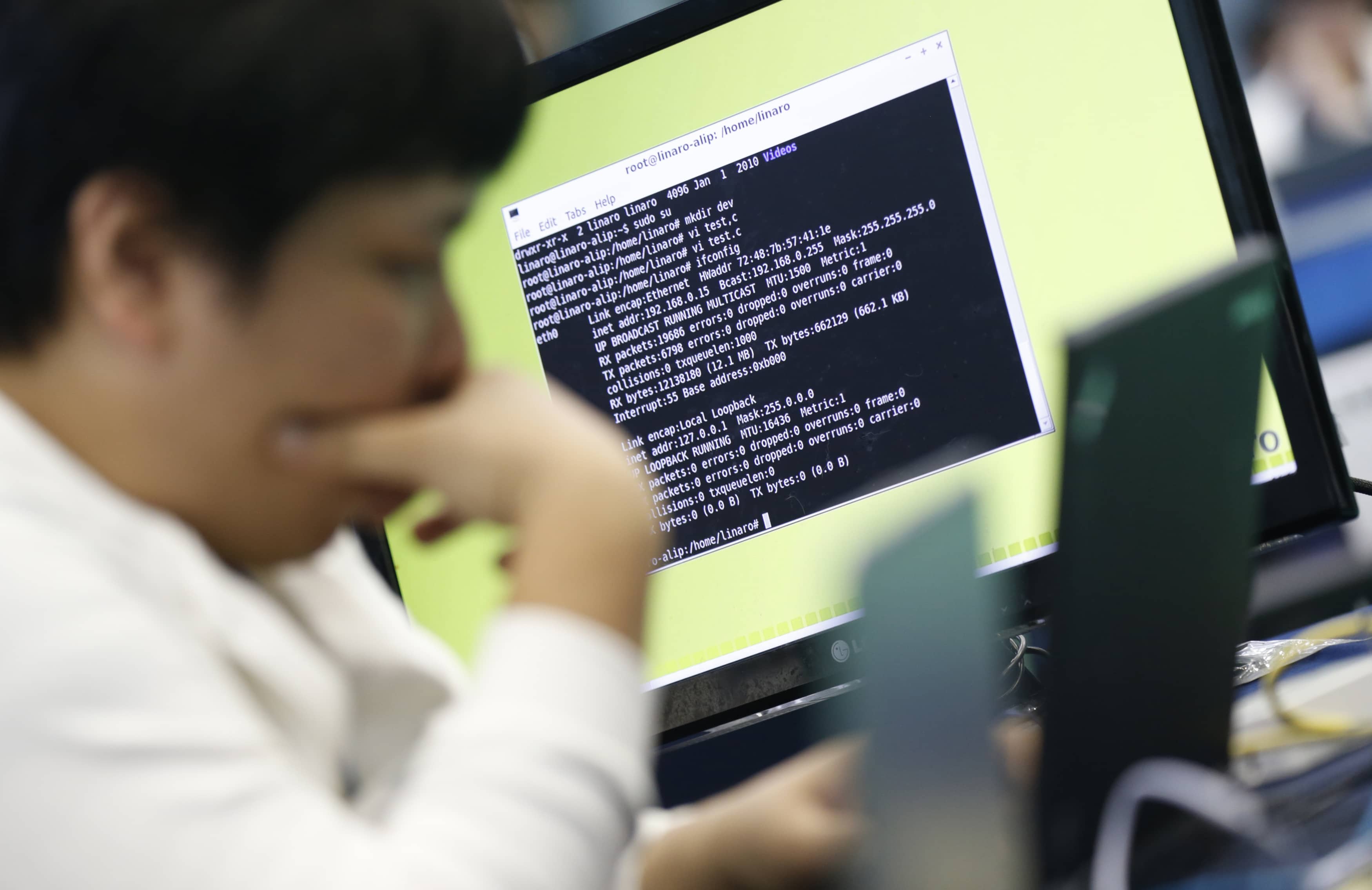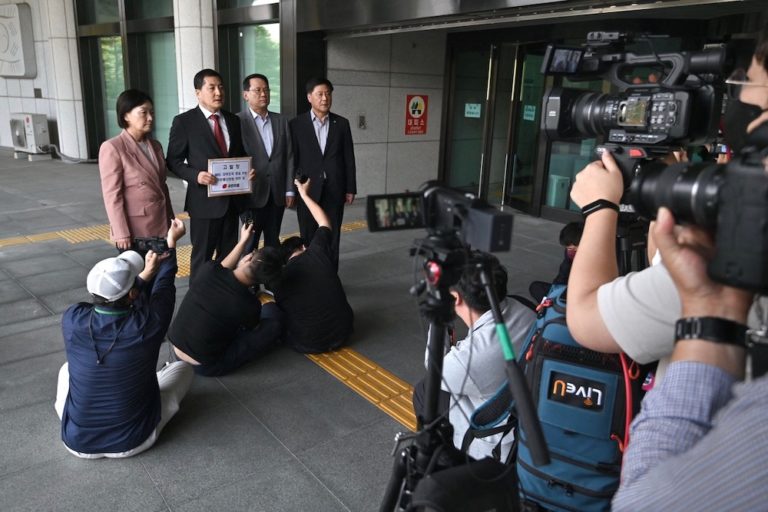The South Korean government has adopted an aggressive interpretation of their copyright law to block websites in the name of copyright enforcement. In practice, this emulates the kinds of extreme provisions that were in the defeated U.S. SOPA bill.
This blog post is co-authored by Heesob Nam, patent attorney, Intellectual Property activist, and a founder and board member of OpenNet Korea.
The South Korean government has adopted an aggressive interpretation of their copyright law to block websites in the name of copyright enforcement. In practice, this emulates the kinds of extreme provisions that were in the defeated U.S. SOPA bill. Its takedown system mirrors the SOPA provision on copyright holders being empowered to compel Internet service providers (ISPs) to block foreign sites through a simple allegation of copyright infringing uses of their platform. Recent cases have revealed a blocking system where agencies now skirt due process and take down websites without even a prior warning to site owners.
In the fall of 2013, the Korean Communication Standard Commission (KCSC) made a recommendation to Internet connection service providers to take down a number of websites, including music-streaming site, Grooveshark. This was at the behest of the Korean Copyright Commission (KCC) and copyright holders who sent notices to websites that were allegedly facilitating copyright infringement. Safe harbor protections enacted under the Korean Copyright Act of 2012 mandated that intermediary services, including ISPs and content hosting platforms such as Grooveshark, were not legally compelled to take action based on a mere recommendation. Safe harbors are meant to ensure that those services are safe from liability as long as they respond to a proper notice of infringing content. Even though Grooveshark removed content every time they received a notice that it was infringing, the site still ended up getting blocked.
Digital rights organization, OpenNet Korea, is now leading administrative litigation to challenge the blockage of Grooveshark. Their challenge points out the gross procedural unfairness, Grooveshark’s lack of protection under the existing ISP safe harbor law, and the resulting censorship of the site. As previously mentioned, the most troubling aspect of this was that the KCSC, the KCC, nor any other responsible agency notified Grooveshark and the owners of the other sites that they would take down the site before they did so. Ultimately, Grooveshark did not even know that they were blocked in Korea until OpenNet alerted them of this fact. The KCSC has alleged that they had no way of notifying them because Grooveshark is a U.S.-based site – which is a shaky excuse, at best.
The government’s policy for notifying site owners of a blockage is simply inadequate. The only way to find out about the disconnection is to visit the site from within South Korea, where users are confronted by a warning written in Korean. If you are from abroad or cannot understand Korean, it is highly unlikely you could even be aware of what is going on. Korean officials have not made any significant efforts to contact individual owners when their sites are getting blocked.
The KCC’s authority to order the blockage of sites is questionable in the first place. Under the Korean Copyright Act, only courts are empowered to enforce takedowns, not administrative bodies like the KCC (even though they continue to claim to have this authority in the appeal process). Essentially they are arguing that if a law gives one government body the authority to block sites, it means other agencies are empowered to as well. This is clearly a distortion of the law, but it’s not coming out of thin air.
Trade Agreements Pave the Way for Online Censorship
Korean officials started employing this policy only after the country completed its trade agreement with the United States. Although more recent figures are not available, the South Korean government took down 862 domain names between 2008-2011 over allegations of intellectual property infringement. The numbers of takedowns have steadily increased since it began, and officials still have not released any data on the type of infringement that allegedly occurred.
These types of blocking orders began in 2008, the year following the signature of the U.S.-Korea Free Trade Agreement (KORUS) in 2007. The trade agreement contained a sinister side letter that, among other things, bound Korea to agree to enact a policy directive within six months from the date the agreement would go into effect, to create a means to investigate and take criminal action for online piracy. This included empowering officials to shut down websites that permit “unauthorized downloading.” Back in 2007 when KORUS was signed, the language was too vague to know if Internet connection providers could only be compelled to block sites by the order of a judge. Seeing this play out since 2012, we now know that the government has gone ahead to implement an enforcement regime that completely evades judicial oversight.
Meanwhile, South Korean officials are continuing to consider joining the TPP negotiations. This could be a grim path for Korean Internet users. If South Korea joined TPP, it would mean binding their country to an even more consequential trade agreement that may leave lawmakers with even less flexibility to enact copyright enforcement policies that balance the interests of users against copyright holders.
Given the negotiations over the Trans-Pacific Partnership (TPP) and the Transatlantic Trade and Investment Partnership (TTIP), the current situation in South Korea should serve as a stark example of how trade agreements with industry-backed copyright policies can lead to severe enforcement regimes that legitimize extrajudicial online censorship.
The problem is the fact that digital policy issues are included in these secretive trade agreements at all. These matters are decided in opaque negotiations with no public oversight. Users and digital entrepreneurs continue to be left in the dark about regulations that will restrict their ability to create and use new innovative platforms. What has happened in South Korea is that officials are picking and choosing copyright enforcement obligations written into their trade pacts, and relying on their vague terms to justify overreaches of the law to shutdown sites despite having no official mandate to do so. OpenNet’s administrative litigation over peer-to-peer site blockages could successfully challenge the blocking procedure and pave the way for a better set of national policies around enforcement.



